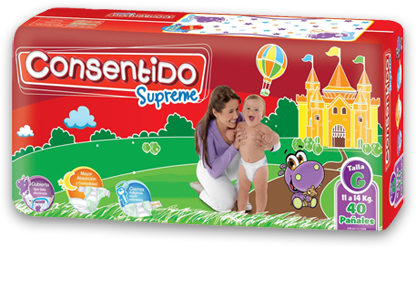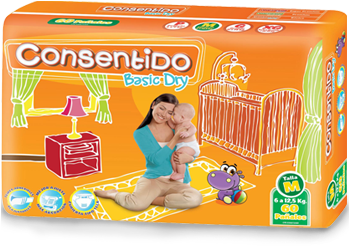<< VOLVER
1Win casino - top bonuses for new players
Are you ready to experience the thrill of online gaming? Look no further than 1Win casino, where new players can enjoy a range of top bonuses to get their journey started. In this article, we'll delve into the world of 1Win casino and explore the exclusive offers available to new players.
1Win casino is a popular online gaming platform that offers a wide range of games, from slots to table games, and even live dealer options. With a user-friendly interface and a commitment to fair play, 1Win has established itself as a trusted name in the online gaming industry.
So, what can new players expect from 1Win casino? For starters, new players can enjoy a 100% welcome bonus of up to €100, which can be used to play a variety of games. But that's not all - 1Win also offers a range of other promotions and bonuses, including daily free spins, reload bonuses, and more.
But what really sets 1Win apart is its commitment to providing a seamless and secure gaming experience. With a range of payment options, including Visa, Mastercard, and more, players can easily deposit and withdraw funds. And with 1Win's state-of-the-art security measures, players can rest assured that their personal and financial information is safe and secure.
So, are you ready to start your 1Win casino journey? With its range of top bonuses, user-friendly interface, and commitment to fair play, 1Win is the perfect choice for new players. And with its 1Win login feature, players can easily access their account and start playing in no time. So why wait? Sign up for 1Win casino today and start enjoying the best bonuses for new players!
1Win Casino: Top Bonuses for New Players
As a new player at 1Win casino, you're in for a treat. The online casino offers a range of exciting bonuses to help you get started and make the most of your gaming experience. In this article, we'll take a closer look at the top bonuses available to new players at 1Win casino.
1Win login is easy and straightforward, and once you've registered, you can start exploring the various bonuses on offer. The first bonus you'll come across is the welcome bonus, which is available to all new players. This bonus offers a 100% match of your initial deposit, up to a maximum of 100,000 RUB. This is a great way to boost your bankroll and give you more opportunities to win big.
Another bonus available to new 1win games players is the 1 win bonus, which is a 50% match of your second deposit, up to a maximum of 50,000 RUB. This bonus is available to players who have already claimed the welcome bonus, and it's a great way to keep the momentum going.
If you're looking for a more exclusive experience, you can also take advantage of the 1win app bonus. This bonus is available to players who download and install the 1Win mobile app, and it offers a 25% match of your first deposit, up to a maximum of 25,000 RUB. This is a great way to get started with the mobile app and make the most of your gaming experience.
How to Claim Your Bonus
Claiming your bonus at 1Win casino is easy. Simply follow these steps:
1. Log in to your 1Win account and go to the cashier section.
2. Select the bonus you want to claim from the list of available bonuses.
3. Enter the bonus code, if required.
4. Confirm that you agree to the terms and conditions of the bonus.
And that's it! Your bonus will be credited to your account, and you can start playing with it. Remember to always read the terms and conditions of each bonus before claiming it, as some bonuses may have specific wagering requirements or other conditions that apply.
Conclusion
In conclusion, 1Win casino offers a range of exciting bonuses to new players, including the welcome bonus, 1 win bonus, and 1win app bonus. By claiming these bonuses, you can boost your bankroll and give yourself more opportunities to win big. Remember to always read the terms and conditions of each bonus before claiming it, and happy gaming at 1Win casino!
Exclusive Welcome Package
At 1Win casino, we understand the importance of a warm welcome. That's why we're thrilled to introduce our exclusive welcome package, designed specifically for new players. This incredible offer is available to all 1Win users who sign up for an account and make their first deposit.
Here's what you can expect from our exclusive welcome package:
• A 100% match bonus up to 100,000 RUB (or equivalent in other currencies) on your first deposit. This means that if you deposit 100,000 RUB, you'll receive an additional 100,000 RUB to play with, giving you a total of 200,000 RUB to enjoy.
• 50 free spins on our popular slot game, Book of Gold. This is a great opportunity to try out our games and get a feel for the 1Win experience.
• A 1Win login and password will be sent to your email, allowing you to access your account and start playing immediately.
• The 1Win app is also available for download, giving you the freedom to play on-the-go and take your gaming experience with you wherever you go.
But that's not all! Our welcome package also comes with some important terms and conditions to keep in mind:
• The bonus is only available to new players who have not previously made a deposit at 1Win.
• The bonus is only valid for 7 days from the date of issue.
• The bonus can only be used on specific games, as specified in our bonus terms and conditions.
• The bonus is subject to a 40x wagering requirement, which means that you'll need to wager the bonus amount 40 times before you can withdraw any winnings.
We're confident that our exclusive welcome package will provide you with an unforgettable gaming experience at 1Win. So why wait? Sign up for an account today and start enjoying the benefits of our incredible welcome offer!
Regular Promotions and Tournaments
At 1Win casino, we believe that every player deserves a chance to win big. That's why we offer a range of regular promotions and tournaments that are designed to give you the best possible gaming experience. Whether you're a new player or a seasoned pro, there's always something exciting happening at 1Win.
One of the most popular promotions at 1Win is our daily bonus wheel. Every day, you'll have the chance to spin the wheel and win a range of prizes, from free spins to cash bonuses. And the best part? You can play as many times as you like, so the more you play, the more chances you'll have to win.
But that's not all - we also offer a range of weekly and monthly promotions that are designed to give you even more opportunities to win. From cashback offers to reload bonuses, there's always something new and exciting happening at 1Win.
1Win Tournaments
And if you're looking for a real challenge, be sure to check out our 1Win tournaments. These are special events that are designed to test your skills and give you the chance to win big. From slots tournaments to table games, there's something for everyone at 1Win.
So why wait? Sign up for 1Win today and start taking advantage of our regular promotions and tournaments. With 1Win, you'll always have a chance to win big - and with our 1Win login, you'll be able to access all of your favorite games and promotions from anywhere, at any time.
And don't forget to follow us on social media to stay up-to-date on all of our latest promotions and tournaments. With 1Win, the fun never stops - and with our 1 win, you'll always be one step ahead of the game.
How to Claim Your Bonus
To claim your bonus at 1Win casino, follow these simple steps:
Step 1: Download and Install the 1Win App
Start by downloading and installing the 1Win app on your mobile device. This will give you access to the casino's full range of games and features.
Step 2: 1Win Login
Once you've installed the app, open it and log in to your account. If you don't have an account yet, you can create one by clicking on the "Register" button and filling out the required information.
Step 3: Go to the Promotions Page
After logging in, navigate to the promotions page by clicking on the "Promotions" or "Bonuses" tab. This is where you'll find all the available bonuses, including the one you're eligible for.
Step 4: Choose Your Bonus
On the promotions page, you'll see a list of available bonuses. Choose the one that's right for you by clicking on it. Make sure to read the terms and conditions of the bonus before proceeding.
Step 5: Meet the Bonus Requirements
Most bonuses at 1Win casino come with certain requirements, such as making a minimum deposit or playing a certain number of games. Make sure to meet these requirements before you can claim your bonus.
Step 6: Claim Your Bonus
Once you've met the bonus requirements, you can claim your bonus by clicking on the "Claim" button. This will add the bonus to your account, and you can start playing with it.
Additional Tips:
- Make sure to read the terms and conditions of the bonus before claiming it.
- Some bonuses may have wagering requirements, so make sure to understand these before playing.
- Don't forget to check the expiration date of your bonus, as it may only be valid for a limited time.
By following these simple steps, you can claim your bonus and start playing at 1Win casino. Remember to always read the terms and conditions of the bonus and to meet the requirements before claiming it. Good luck, and happy gaming!


